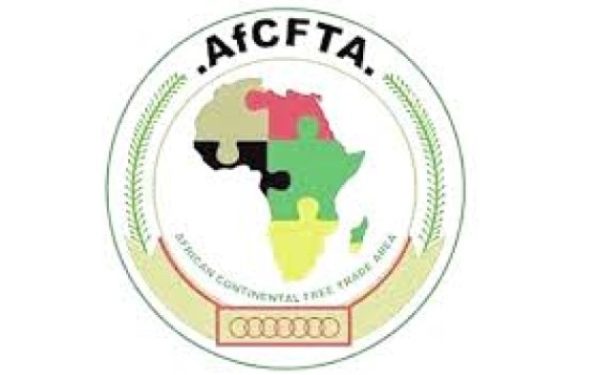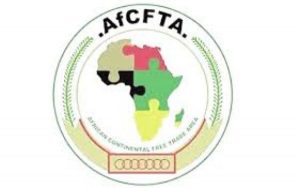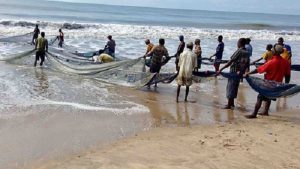Chief of Staff at the African Continental Free Trade Area (AfCFTA) Secretariat, Commissioner Silver Ojakol has called on governments and businesses from party-states to prioritize what he describes as ‘low-hanging’ fruits, particularly agricultural trade as the first, but most important step towards the prosperity of the arrangement.
According to him, the sector provides the ideal launching pad for the initiative, and its proper execution is required for the wide-scale industrialization which the continent sorely requires.
He expressed these thoughts at the Ghana-leg of a roadshow preceding the second Intra-African Trade Fair (IATF 2021), where he was representing the Secretary-General, Wamkele Mene.
Offering caution, he stated that failure to tow this path could see AfCFTA end up with similar ‘unfulfilled development promises’ in agriculture as witnessed under the General Agreement on Tariffs and Trade (GATT) as well as the World Trade Organisation (WTO).
“Agricultural trade is the prime example of a low-hanging fruit, and we urge the members of the business community to urge your governments to free the areas that you know are low-hanging. If you treat agriculture in the AfCFTA in the same manner in which it has been treated at the WTO, we will not move forward.”
Taking the argument further on the sidelines with the B&FT, he stated that an Agric-first approach aid in developing inclusive regional value chains around priority commodities, led by a dynamic and diverse private sector of smallholders, commercial farmers, processors and service providers. This, he noted would be a boost for intra-African Trade and Africa’s trade with the rest of the world.
“Most of the economies on the continent are agriculture-based. Why would you have yams rotting in Ghana or in Nigeria when people in Burkina need it? If we are able to address this, then industrialization will begin to set in,” he said.
Allaying fears that the Agric-first approach would lead to a monotonous market, he stated that competitive advantage would bring about balance and nations which lose out in one market would benefit in others, as regions begin to specialize.
Many of the continent’s regional economic communities have already identified strategic commodities for further development into regional value chains: Eastern Africa has prioritized rice, beans and dairy, among others. West Africa has prioritized sorghum, livestock, fish and aquaculture products, among others. Southern Africa’s priorities include soya beans and groundnuts.
This regional approach, according to experts, has the potential to absorb smallholder farmers including women and youth, and micro, small and medium-sized enterprises, and connect them to the larger private sector which dominates input and output markets.
According to the Food and Agriculture Organisation, despite Africa’s dependence exports of its agricultural commodities such as cocoa, coffee, cotton, tobacco, it remains a net importer of staple foods such as cereals, vegetable oils, dairy products and meat.
This is particularly worrying as total trade between African countries stood at a mere 2% from 2015-17, compared to 67% for intra-regional trade among European countries, 61% for Asia, and 47% for the Americas, according to the UN’s trade Organisation, UNCTAD.
Intra-African agricultural trade as a percentage of total African agricultural trade consistently remains below 20%, one of the lowest for any region.
Intra-African Trade Fair (IATF2021), which is organized by the African Export-Import Bank (Afreximbank) in collaboration with the African Union (AU) and the African Continental Free Trade Area (AfCFTA) Secretariat, is slated for Durban, Kwazulu-Natal, South Africa and has as its theme: ‘Building bridges for a successful AfCFTA.’
It will provide a platform to promote trade under the AfCFTA. It will bring together continental and global buyers and sellers, and will enable stakeholders to share trade, investment and market information as well as trade finance and trade facilitation solutions designed to support intra-African trade and the economic integration of the continent.







